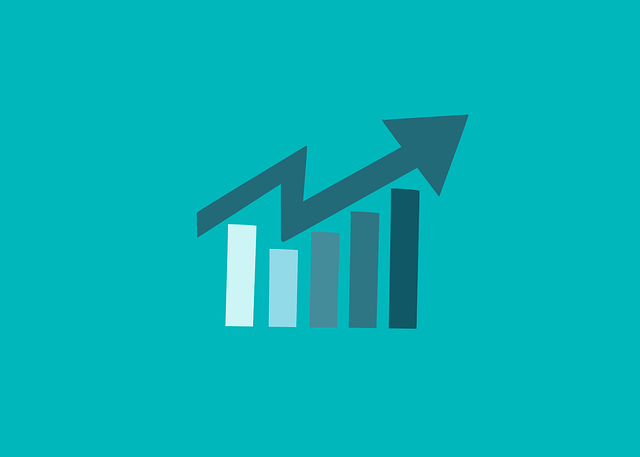What are Farms Loans for Women?
Farm loans for women are specialized financial resources designed to support women farmers in their agricultural pursuits. These loans address the unique needs of women in agriculture, providing essential funding for their farming operations.
Despite facing challenges in accessing funding, women-owned farms and women farmers play a significant role in the agricultural sector. Tailored financial solutions like farm loans for women are crucial in empowering and sustaining the growth of women in agriculture.
How do Farm Loans for Women work?
Women farmers and ranchers have various options for securing loans for their agricultural ventures, such as purchasing a family farm. These loans offer competitive interest rates and flexible repayment terms, making them attractive choices.
SBA Loans
Women farmers looking to start or expand their businesses can benefit from Small Business Administration (SBA) loans tailored to their needs. Among the best SBA loans available for women farmers are the SBA 7(a) loans, which provide funding for various purposes such as purchasing land, equipment, or livestock.
SBA Express loans offer a quicker funding turnaround time, making them ideal for women farmers looking for immediate financial assistance. SBA microloans can be an excellent option for those seeking smaller loan amounts, providing up to $50,000 to help women farmers cover operating expenses or purchase supplies. Consider your needs when choosing the best loan program.
FSA Loans
Farm Service Agency (FSA) loans offer valuable financial support to women farmers looking to expand their agricultural operations or invest in new equipment. These loans provide access to much-needed capital, allowing women to purchase land or livestock, make necessary improvements to their farms, and cover family living expenses.
Additionally, FSA loans often come with favorable terms and interest rates, making them an attractive option for women in the agricultural industry. Per the USDA, while the FSA has a statutory obligation to service all farmers, it targets a portion of guaranteed loans, direct operating and direct farm ownership loans, microloan funding, and youth loans to historically underserved farmers. These include:
- Women.
- African Americans.
- Alaskan Natives.
- Native Americans.
- Hispanics.
- Asians.
- Native Hawaiians and Pacific Islanders.
Business Term Loans
Business term loans can be a valuable financial tool for women farmers looking to expand their operations, invest in new equipment, or purchase additional land. These loans typically have fixed terms and interest rates, providing predictability for budgeting and planning.
Women farmers can use term loans to finance long-term projects to help grow their businesses and increase profitability. Women in agriculture can overcome financial barriers and achieve their agricultural goals by accessing these loans.
Equipment Financing
Equipment financing can be a crucial tool for women farmers looking to invest in machinery and technology to improve their agricultural operations. Access to financing can help women farmers overcome financial barriers and expand their businesses.
By securing equipment financing, women farmers can increase productivity, reduce labor costs, and ultimately enhance their overall efficiency in the farming industry. Additionally, equipment financing can allow women farmers to stay competitive in the market and adapt to changing agricultural trends.
Why is it more challenging for Women to get Farm Loans?
Studies have shown that female farmers are less likely to receive loans compared to their male counterparts due to biases in the lending process. This systemic issue highlights the need for greater fact-based approaches in the lending industry to ensure equal opportunities for all farmers, regardless of gender. Efforts must be made to address these disparities and create a more inclusive environment for female farmers seeking financial assistance.
What are the best Lenders for Farm Loans for Women?
When seeking farm loans, women farmers can work with a private lender, community development lender, nonprofit, or government agency.
SBA Lenders: The SBA doesn’t directly fund SBA loans. Instead, loan applicants must apply to an SBA-approved lender, which could be a bank, credit union, or alternative lender. SBA lenders provide financial assistance to underserved farmers in the agriculture sector.
Banks: Traditional banks also play a crucial role in providing farm loans for women. They offer competitive interest rates and tailored financial solutions to meet the needs of female ranchers and farmers. However, it can be challenging to qualify for a traditional bank loan.
FSA: The FSA can provide financing for ranchers, farmers, or other agricultural businesses directly or through their network of business and nonprofit lenders. Women seeking a farm loan from the FSA or its lenders should carefully review eligibility criteria before applying.
Alternative Lenders: In addition to traditional options, alternative lenders have emerged as viable sources of farm loans for women. These lenders often have more flexible eligibility criteria and quicker approval processes, catering to the specific needs of female farmers.
What are the benefits of Farm Loans for Women?
Farm loans offer women farmers a vital financial resource to expand their agricultural ventures. Women can invest in modern equipment and technologies by providing access to funding, enhancing their farm productivity. This leads to increased yields and improved quality of produce.
With the support of farm loans, underserved women in rural areas can overcome financial barriers and establish sustainable farming practices. The funds enable them to purchase seeds, fertilizers, and livestock, which are crucial for successful agricultural operations. As a result, women farmers can diversify their crops and livestock, contributing to food security and economic growth.
Moreover, farm loans empower women to invest in education and training programs related to agriculture. This equips them with valuable skills and knowledge to optimize their farming techniques and adapt to changing market demands. Ultimately, these initiatives benefit individual women and strengthen the agricultural sector as a whole.
What are the drawbacks of Farm Loans for Women?
Farm loans for women also come with challenges that need to be considered. One significant drawback is the cost involved regarding interest rates and fees. In particular, women often face credit challenges, increasing the cost of the financing.
Moreover, women often face difficulties meeting the collateral requirements set by financial institutions when applying for farm loans. This poses a significant obstacle as many women may not have the necessary assets to pledge as collateral. As a result, they might struggle to secure the funding needed for their agricultural activities.
The process of getting approved for farm loans can be complex and time-consuming. This can lead to delays in obtaining funds, hindering women farmers from investing in their farms and improving productivity.
Farm Loans for Women Pros & Cons
Pros:
- Provide financial support for women farmers to invest in their farms.
- Help women access resources and tools needed for successful farming.
- Can empower women in male-dominated industries.
- Increase economic opportunities for women in rural areas.
Cons:
- Potential for higher interest rates due to credit challenges.
- Limited access to information and resources for women farmers.
- Potential discrimination or bias in loan approval processes.
- Lack of tailored financial products for women’s specific needs.
How do Women apply for Farm Loans?
Applying for a farm loan as a woman can be a straightforward process if you follow these step-by-step guidelines:
Step 1 – Research Loan Options: Start by researching different loan options available for women in agriculture. Look for programs specifically designed to support female farmers and carefully consider each loan’s terms and conditions.
Step 2 – Gather Necessary Documents: Before applying for a farm loan, make sure you have all the necessary documents in order. This may include proof of income, business plan, credit history, and other relevant financial information.
Step 3 – Contact Lenders: Reach out to potential lenders who offer farm loans for women. Schedule meetings or phone calls to discuss your financial needs and explore your loan options.
Step 4 – Complete the Application: Once you have chosen a lender, complete the loan application form accurately and provide all required information. Be prepared to answer questions about your farming experience, business plan, and financial goals.
Step 5 – Wait for Approval: After you submit your application, the lender will review your information and decide whether to approve your farm loan. This process may take some time, so be patient and await their response.
Step 6 – Receive funding: If your farm loan application is approved, you will receive funding to support your agricultural business. To maintain a good relationship with the lender, use the funds wisely and keep up with the repayment schedule.
Frequently Asked Questions
Here are the most common questions about farm loans for women.
What are the interest rates on Farm Loans for Women?
Farm loans for women typically come with competitive interest rates often lower than other types of loans. These rates can vary based on factors such as the loan amount, repayment period, and the financial institution providing the loan. It’s essential for women seeking farm loans to compare interest rates from different lenders to find the best option that suits their financial needs.
In addition to interest rates, women applying for farm loans should also consider the associated fees. These fees may include application fees, processing fees, and late payment charges. Understanding these fees is crucial for women to accurately calculate the total cost of borrowing and make informed decisions when choosing a lender.
Are there Farm Grants for Women Farmers?
Government agencies, nonprofit organizations, and private foundations typically offer farm grants. These entities aim to empower minority and women farmers by providing financial support for their agricultural endeavors.
Some potential grants include:
- USDA Farm Service Agency’s Women and Minority Farmers and Ranchers Program.
- Young Farmer Grant Program.
- American Agri-Women Scholarships and Grants.
- National Institute of Food and Agriculture’s Women and Minorities in Science, Technology, Engineering, and Mathematics Fields Program.
- Vermont Farm Women’s Fund.
- Annie’s Grants for Gardens.
- FarmHer Grow Program by FarmHer.
- Rural Business Development Grants by USDA.
- Small Business Innovation Research Program by USDA.
- Local and state-specific grants for women farmers.
Benefits of Farm Grants
Receiving a farm grant can significantly benefit women farmers. These grants allow them to invest in equipment, seeds, and training programs, enabling them to expand their operations and increase farm productivity.
Challenges and Competition
Despite the advantages, securing farm grants can be competitive due to limited funding availability and high demand. Women farmers often face challenges such as stringent application requirements and intense competition from other applicants.
How can Beginning Farmers get an Agricultural Loan?
As a beginning farmer, you can access agricultural loans through the Farm Service Agency (FSA) and guaranteed loan programs. FSA offers varying loan amounts for land and equipment. Crop insurance and organizations like the National Young Farmers Coalition provide additional support for financial security and navigating loan processes.
Are there other Business Loans for Women?
Yes, there are other business loans for women. These loans are specifically designed for women entrepreneurs and often come with competitive interest rates and more flexible repayment terms. Some financial institutions offer specialized programs and resources for women-owned businesses to help them access the funding they need to grow and succeed.
Small Business Loans
Small business loans for women or other entrepreneurs include:
- Bad credit business loan.
- Business line of credit.
- Business term loans.
- Equipment financing.
- Invoice factoring.
- Merchant cash advance.
- Revenue-based loan.
- SBA loans.
- Working capital loans.
- ERTC advance.
Farm Loans for Women – Final Thoughts
Farm loans for women are crucial in empowering female farmers to succeed in agriculture. By providing access to financial resources, women can cover farm operating costs, invest in technology, and ultimately contribute to the growth and sustainability of the agricultural sector.
Contact us if you have more questions about farm loans for women or to apply for a small business loan. Our alternative business financing specialists can help you find the best funding options for agricultural or other business needs.






















